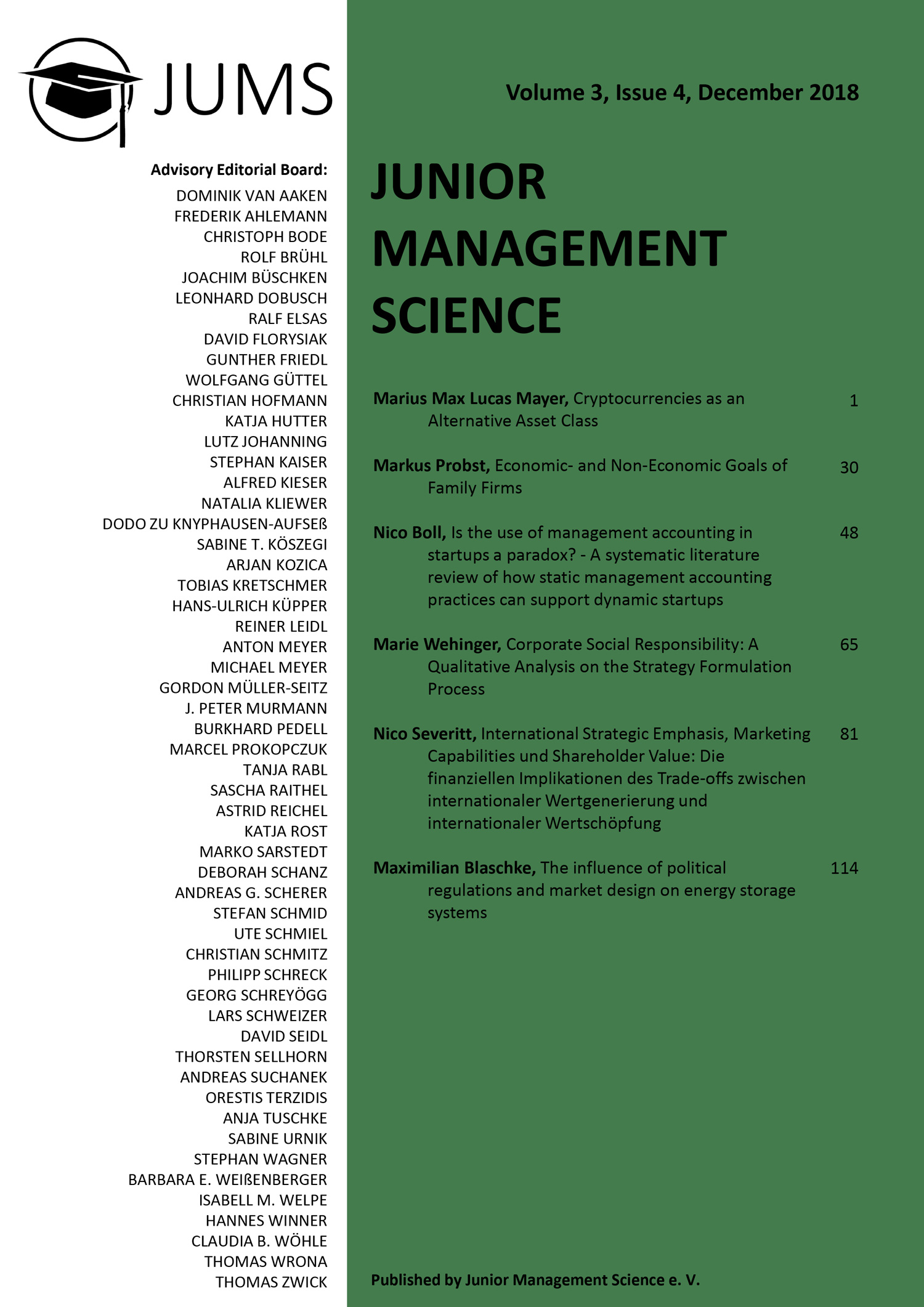Abstract
This study examines the profitability of residential storage systems in combination with photovoltaic systems for varying political scenarios and under different market conditions. By comparing the energy flows of a photovoltaic rooftop facility to an average German household’s consumption pattern, this thesis calculates the additional self-consumption that can be achieved through a battery storage system and values the resulting savings via a net present value approach. The simulations of this study identify boundaries for specific political regulations and market environments that can enable battery storage systems to be operated in a profitably way. Based on the assumptions of this thesis, current market conditions do not allow battery storage installations to generate positive returns on investment. Nevertheless, there could be lucrative opportunities in battery storage systems for future electricity price movements and sinking system costs.
Keywords: Battery storage, Solar photovoltaic power, Distributed electricity, Energy policy, Market regulation

